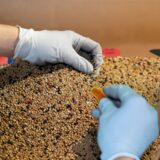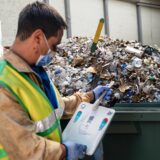


















Mission & Vision
The International Pierre Gy Sampling Association, IPGSA, promotes the development and application of the Theory of Sampling (TOS). TOS was founded by Pierre Gy (1950s) to address sampling issues in key industrial sectors focusing mainly on mining, minerals, cement, and metals processing. Despite the initial specificity of the sector where TOS was developed and applied, the experience gained during the last 30 years demonstrates the universal relevance and applicability of TOS across all sectors, disciplines, and domains where sampling is used to take informed decisions.
1. IPGSA Vision
IPGSA to be the internationally recognised scientific organisation guiding and advising on all matters regarding sampling of heterogeneous materials, lots, and processes across all relevant scientific, societal and industrial sectors.
2. IPGSA Purpose and Objectives
IPGSA operates at three macro-levels:
- Know-how development: IPGSA guides and leads the developments of TOS, from both theoretical and practical perspectives, across all sectors in need of sampling to take informed/optimal decisions.
- Advice and support: IPGSA provides assistant on sampling matters across all sectors.
- Capability building: IPGSA offers, or helps to offer, training lectures and material to actively communicate and demonstrate TOS and its applications and expected Quality Programs required.
3. What IPGSA does
- Awards and supervises the organisation of World Conference on Sampling and Blending – WCSB – every 2 years.
- Participates in developing national and international standards on sampling by proposing and supplying committee members and background knowledge.
- Publishes Sampling Science and Technology (SST), IPGSA’s scientific platform.
- Maintains a webpage serving as a communication platform on sampling where key papers, technical documents and active links are available to provide in-depth information on sampling & TOS. The webpage is structured in a multi-tiered fashion offering folders specific for beginners and experts.
- Organises, or helps to organise, training lectures in all sampling sectors.
4. Who is IPGSA addressing
- Any end-user relying on sampling to make inferences in commercial, industrial, research, and regulatory activities.
- Any end-user in need to balance ‘cost of sampling’ vs. ‘risk of being wrong’ and requirements of regulatory declarations.
- Regulators and governance bodies relying on sampling to check compliance with legislative requirements, i.e. regulatory sampling.
- Sampling practitioners around the world and across sectors who are tasked to implement sampling solutions within boundaries of available resources.
- Universities and research organizations training on disciplines where sampling is a necessary competence for correct scientific inquiry and decision-making.
- Students, managers, free-lancers interested in sampling.
